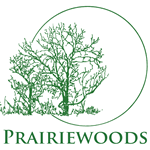
As we practice greater physical distancing and even isolation from people in these days of pandemic, we have the opportunity to embrace a closer relationship with the natural world. But how do we do that? One good way is to start a habit of nature conversations.
As I say in the book I co-authored with Cindy Crosby, Tallgrass Conversations: In Search of the Prairie Spirit (Ice Cube Press, 2019), “Conversation is perhaps our greatest hope not only for healing the rifts in human understanding but also for restoring and reinspiring our relationship with the natural world,” which is “our first and most profound home. Care of the world is always essential, and care arises from conversation.” As a society, though, we haven’t engaged enough in this “Great Conversation,” as Belden Lane would call it. As Lane says, “We’re surrounded by a world that talks, but we don’t listen. We’re part of a community engaged in a vast conversation, but we deny our role in it” (The Great Conversation: Nature and the Care of the Soul, Oxford University Press, 2019). These times give us a perfect time to start listening.
Listening is always the most important part of conversation, really, and it’s the first thing I would focus on when embarking on a practice of nature conversations. So what does it mean to listen to nature?
Listening to nature means that we tune in attentively to the grasses, flowers, trees, birds, mammals, insects, waters, soils and air that surround us, and especially their interrelationships, including our interrelationships with them. A good listener in a nature conversation “hears” more than the sounds of melodious birds, buzzing insects, rustling grasses and sighing wind through tree branches that reach our ears, which of course are beautiful and wondrous. We also must become attuned to our intuition, feelings and other senses to know what the world is “saying.”
When we notice the proliferation of invasive plant species, the prairies and woods of our Midwestern home are telling us that the ground remains disturbed and continues to need human intervention and care. When the song of the meadowlark and bobolink go silent, our meadows are lamenting the loss of habitat for these winged migrants. When the first sign of green emerges from the soil in early spring, we should hear, “Your trust in nature is well placed.” When the world bursts forth in its summer glory, the message a good listener might hear from nature is “Our strength, our life, is in interdependence, as should be yours.”
To hear both the wisdom and wounds of nature, and to take up our responsibilities for care of the world and learn its lessons, take that first step in conversation: listen. You will discover that the world is speaking profoundly to us about our relationship with it. It is our obligation—and our honor—to listen, and both our ethic of care and our spirit will be deepened.
—Thomas Dean, Prairiewoods programming facilitator and co-author (with Cindy Crosby) of Tallgrass Conversations: In Search of the Prairie Spirit (Ice Cube Press, 2019)


